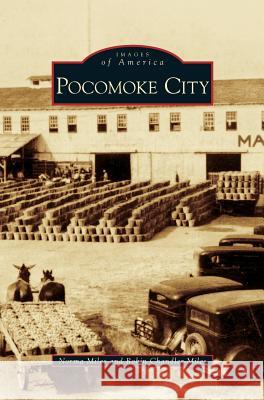Pocomoke City » książka
Pocomoke City
ISBN-13: 9781531633660 / Angielski / Twarda / 2008 / 130 str.
In 1670, Lord Baltimore sent his representative, Col. William Stevens, to claim and develop land in rural Maryland. He established a ferry crossing along the banks of the deep, dark Pocomoke River, and the settlement that would eventually become Pocomoke City was born. Trade flourished; boats filled with lumber, tobacco, and furs sailed on the river to Northern ports, and shipbuilding became a successful enterprise. People flocked to Pocomoke City to work at the lumber mills and in the shipyards, and the little town grew into a small center of commerce with the coming of the Pennsylvania Railroad. In 1922, a devastating fire destroyed 75 percent of the business section of the town, but the community came together and rebuilt what has been called "the Friendliest Town on the Eastern Shore."
In 1670, Lord Baltimore sent his representative, Col. William Stevens, to claim and develop land in rural Maryland. He established a ferry crossing along the banks of the deep, dark Pocomoke River, and the settlement that would eventually become Pocomoke City was born. Trade flourished; boats filled with lumber, tobacco, and furs sailed on the river to Northern ports, and shipbuilding became a successful enterprise. People flocked to Pocomoke City to work at the lumber mills and in the shipyards, and the little town grew into a small center of commerce with the coming of the Pennsylvania Railroad. In 1922, a devastating fire destroyed 75 percent of the business section of the town, but the community came together and rebuilt what has been called "the Friendliest Town on the Eastern Shore."











